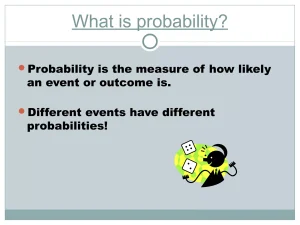
Let’s be honest, the casino floor isn’t exactly designed with comfort in mind. The lights are bright, the noise is constant, and those chairs… well, they’re not the plush recliners you have at home. For senior players, a long session of blackjack can be more of a marathon than a leisurely pursuit.
But here’s the deal: blackjack remains one of the best games in the house for a sharp mind. It’s a game of skill, not just pure luck. The challenge, then, isn’t whether you can play, but how you can play smarter. It’s about adapting the classic strategies to fit your pace, your comfort, and your goals. Think of it like adjusting the driver’s seat before a long trip—you’re still going to the same destination, but the journey is a whole lot more enjoyable.
Why the Classic Strategy Might Need a Tweak
You’ve probably seen the basic strategy charts. They’re a fantastic starting point, a roadmap to minimizing the house edge. But they assume a few things: lightning-fast mental math, the stamina to play for hours without a dip in concentration, and a tolerance for the emotional rollercoaster of the game.
For older adults, the game’s demands can shift. Maybe you find it harder to track the flow of a six-deck shoe. Perhaps standing for long periods to play isn’t an option anymore. Or, honestly, maybe you just want to relax and have fun without the intense pressure to be mathematically perfect on every single hand. And that’s perfectly okay. The goal is to maximize your enjoyment and your bankroll, not to win a world championship.
Practical Adjustments to Your Blackjack Approach
Pacing and Endurance: It’s Not a Sprint
This is arguably the most important adaptation. Fatigue is the enemy of good decision-making.
- Play at quieter times. A Tuesday afternoon is a world away from a Saturday night crowd. Less noise and bustle means less cognitive load, allowing you to focus.
- Set a time limit, not just a loss limit. Decide you’ll play for 90 minutes, then take a long break. Walk around. Get a coffee. Let your mind reset.
- Find a comfortable seat. Don’t be shy about asking for a chair with a back or moving to a table where you can sit comfortably. Your body will thank you, and your mind will stay sharper.
Simplifying the Mental Load
You don’t need to memorize every single permutation of a complex strategy card. In fact, focusing on the big decisions can save you a lot of mental energy. Let’s look at a simplified approach to some common hands.
| Your Hand | Dealer’s Up Card | Classic Basic Strategy | Senior-Friendly Focus |
| Hard 16 | 7, 8, 9, 10, A | Hit | Always hit. This is a losing hand. Don’t overthink it. |
| Soft 18 (A,7) | 9, 10, A | Hit | This is a tough one. Consider standing if you’re feeling uncertain. The loss in EV is small, and it reduces stress. |
| 12 | 4, 5, 6 | Stand | Always stand. The dealer is in a weak position. Let them bust. |
The idea here is to identify the “no-brainer” decisions and lock them in. This reduces hesitation and the mental gymnastics on every turn.
Bankroll Management: Playing for the Long Haul
This is good advice for any player, but it’s absolutely critical for seniors on a fixed income. The thrill of the game can’t come at the expense of financial security.
- Only bring the cash you are prepared to lose. Leave the debit and credit cards in the hotel safe.
- Use a smaller unit bet. If you were thinking $25 a hand, try $15. It makes your bankroll last longer and takes the pressure off each individual loss.
- Set a win goal. If you double your money, cash out and celebrate. Greed is the ultimate pitfall.
The Social and Cognitive Perks
We can’t talk about senior blackjack without mentioning the incredible benefits beyond the money. A blackjack table is a social hub. It’s a place to chat, to share a laugh, to engage in a little friendly competition. This social interaction is a powerful tool for mental well-being.
And the game itself? It’s like a workout for your brain. Calculating odds, remembering basic strategy, and reading the table—it all keeps those neural pathways active and firing. You’re not just playing a game; you’re giving your cognitive health a boost. It’s a compelling reason to pull up a chair.
Final Thoughts: Playing Your Game
In the end, adapting blackjack strategy for older adults isn’t about dumbing the game down. It’s the opposite, really. It’s about being smart enough to know your own limits and preferences. It’s about choosing a path that prioritizes enjoyment and sustainability over robotic perfection.
The next time you approach the green felt, remember that the greatest advantage you have isn’t just knowing when to hit or stand. It’s the wisdom to play the game on your own terms. To know when to push forward and, just as importantly, when to walk away with a smile—win or lose. That’s a strategy that pays dividends far beyond the casino floor.








